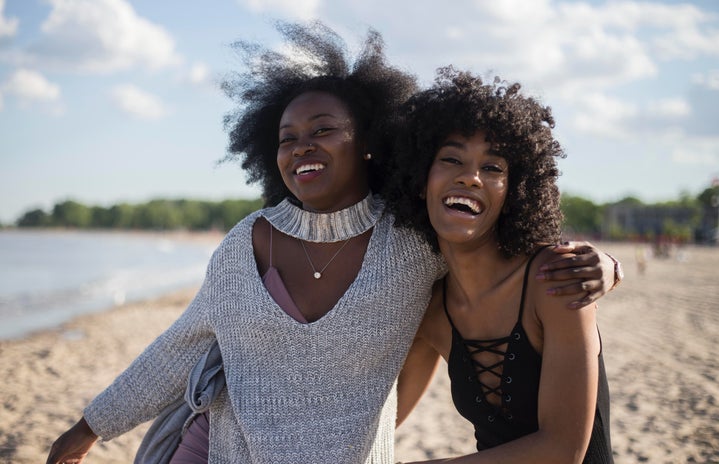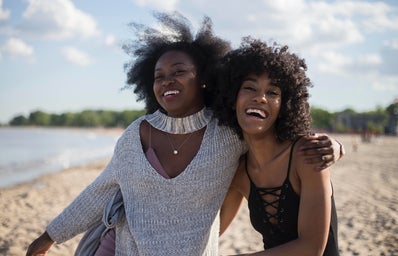It’s funny that we conclude people don’t change after constantly wanting them to. At the same time, it’s funny that we conclude people do change after constantly wanting them to stay the same. After giving them so many chances to change, we realize that they won’t because people only change when they want to. But when we’re extremely close to a person and we see that they are changing, we do everything in our power to ignore it.
We are always changing; our bodies literally regenerate new cells everyday, our hair and skin constantly shed, our thoughts are always shifting, and our emotions run low and high. However, we’re always constant in some sense, regarding our inner values or inbred traits of our personality, our DNA, our ethnic backgrounds.
It’s interesting that when we want people to change, these people often don’t. They make excuses and we make excuses for why they do not change. Change is natural, but only when the individual who is being affected allows it.
The more we want someone to quit a nasty habit or do something we’ve been begging them to do, the more we believe that people just do not change. They’re stubborn and have quirks, no matter how many chances we give them or how much we think our influences can fix their destructive behaviors.
It’s like the more we push and push, the more they shove us away. The more we feel left alone because we think we’re doing everything right. We think that we should always be there for them, but that’s not how attraction works.
You see, nobody wants a doormat. Nobody wants to be around someone who’s world revolves around taking care of someone else who is co-dependent, needy, and isn’t driven by their own independent passions or goals.
We don’t realize all of this though. We’re so occupied in trying to help them to change that we lose track of ourselves. Our mission becomes forcing someone to change, only making them want to remain the same.
And then if we’re lucky and learn from the past, we give up. We realize that they’re a lost cause and move on with our life. We admit that they say that they’ll change, but they really won’t unless they truly want to. When our efforts are depleted and we have tried everything to insinuate a difference in their life, then our only conclusion is to admit that people simply do not change.
But then something interesting happens. When we give up, that’s when people change. We’re all guilty: we’re all in this cycle of push and shove. Sometimes we push and they shove; sometimes they push and we shove. After being so blinded by force, we finally feel free because pressure no longer fills so much space, opening up more room for change to actually take place.
Internally, something clicks. We change. People change. Our mental state, the way we view the world, the way we talk, the way we present ourselves change. We become different in the way we act; we become a new person.
Some don’t like our changes and some do, but it does not matter. It’s interesting because change can be forced by circumstances yet may feel natural because we allowed it. We always change voluntarily even if it may seem involuntary at the time.
So, our habits disappear or new ones emerge. Our friendships and relationships with others dwindle because we realize that they’ve changed, and suddenly it’s such a melancholy thing. We want people to change, but then we don’t. We want people to change when we want them to, but not when they want to.
We then become surrounded by acquaintances and strangers that were once the closest people to us because “people change.” We become weary and disappointed, but mainly surprised because we often don’t think they would change in the ways that they did.
When we’re upset and tired, we yell out that “they’ll never change,” but when we’re hurt and longing, we cry out “they changed.” It’s painful to adjust and adapt in both situations because we all know, deep down, that change is inevitable.
Our self doubt heightens because we think that we were a barrier. Instead of the supporter, if the change was subjectively good, we become the one that was holding them back. Sometimes the roles are switched depending on the person’s own feelings. We think that “maybe they were always like this and I was just a stepping stone” or “maybe I’m the reason they’re acting out.” We blame ourselves for both when people change or when they don’t change.
Ultimately, life takes us in all kinds of directions and typically our lives become different. Our experiences and decisions reshape us everyday. We remain the same in some areas, but then we change in others or we change altogether. Inherently, it can be argued that we might all stay the same from developed and rooted personality foundations, but even those traits are not entirely constant either.
Everything affects us, large or small, and our response is either to change or to remain the same. So, that’s when people subconsciously decide, and that’s when we construct the judgment that “people don’t change, but then they do.”
Related Articles
Want more HCW? Check us out on social media!



